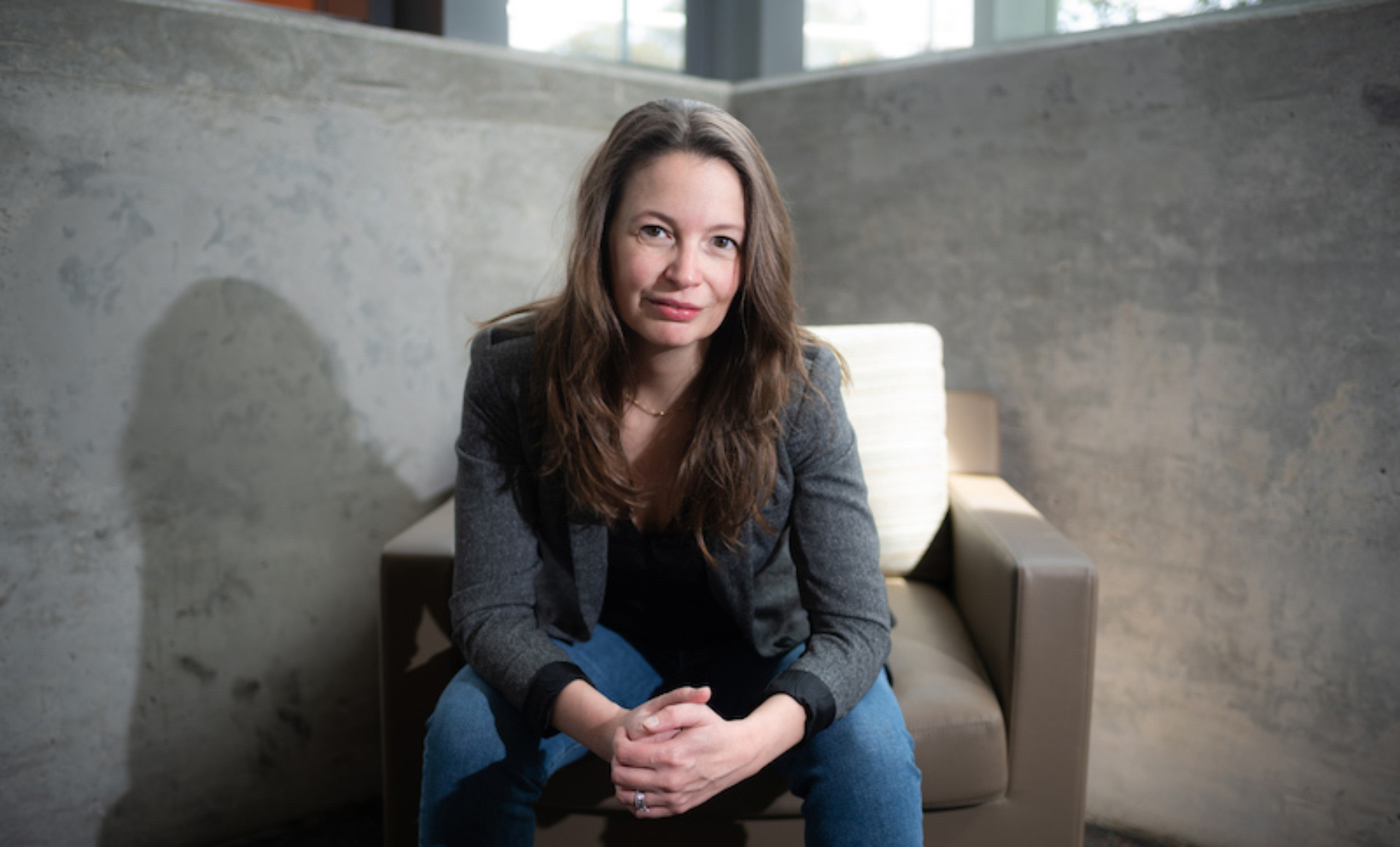Food is one of many factors impacting health, but it can be one of the most difficult to solve for — requiring understanding of nutrition, human behavior, socioeconomic forces and more.

Marissa Burgermaster, Ph.D.
Enter Marissa Burgermaster, Ph.D., a behavioral nutrition scientist and assistant professor in Dell Med’s Department of Population Health. She and her team are using biomedical informatics to improve our understanding of health and nutrition. Her goal? Personalized tools and data-driven goals to help individuals manage (and even prevent) chronic disease through diet.
What’s the problem you’re hoping to solve, and how did you come to recognize it?
Behavioral scientists widely acknowledge that nutrition is the hardest health behavior to change. My aim is to make chronic disease prevention and management through diet both effective and accessible. While most people have a “gut” feeling about how nutrition is related to health, many people have a challenging relationship with food and diet, and are unsure how to eat to prevent and manage chronic disease.
It’s hard for people to recognize all of the internal and external factors that affect food choice — from taste preferences and marketing to food insecurity and cooking skills, to name a few. My heart hurts when I see patients — especially those with Type 2 diabetes — feel guilty and ashamed about a diet-related chronic disease diagnosis.
What’s your solution for accessibility?
My lab creates nutrition-based interventions that improve the systems that support people to adopt a health-promoting diet. This is especially important for vulnerable populations, like historically marginalized communities and women with infants. For example, we developed “Nutri,” a software that incorporates data science, nutritional science and behavioral science to make it easier for doctors to talk with patients about nutrition in a personalized and meaningful way.
We just finished up a successful pilot of “Nutri” at Lone Star Circle of Care, a Central Texas clinic network that serves un- and underinsured patients. We’re also working with Women’s Health here at UT Health Austin (the clinical practice of Dell Med) on improving nutritional care for pregnant and postpartum women.
What needs to happen, broadly, to help people manage their food choices most effectively?
Nutrition interventions barely move the needle when you look at the average effect. Digging into the data, though, provides nuance: In every test, the nutrition intervention actually does work perfectly for some people — just not all. With millions of interventions and millions of different people out there, we need ways to match the right intervention to the right person. This is just the kind of problem that needs artificial intelligence and human empathy together to solve.
Everyone eats! However, there are many structural factors that make it difficult to follow a health-promoting diet. The world needs to shift from a perspective of blaming the individual to one that places responsibility for healthy diet at a more systemic level.
How are you uniquely positioned in this space?
After completing my Ph.D. in behavioral nutrition, which explores the reasons behind dietary behaviors and how to address them, I received funding from the National Library of Medicine to complete a postdoctoral fellowship and earn a master’s degree in biomedical informatics, which involves leveraging health data to support decision-making in health care.
My interdisciplinary training in both of these fields is unique and allows me to employ computer science methods like user-centered design, ontology building, and machine learning, to develop personalized nutrition interventions. My behavioral nutrition training in the social ecological model, community engagement and health disparities is what informs my focus on populations for whom personalized technologies are not often designed.
This news feature is part of Dell Med’s Voices, a series of profiles that highlight the people of Dell Med as they work to improve health with a unique focus on our community.